Do you have a problem with ants in your garden? If so, you’re not alone. Ants are one of the most widespread garden pests. They might be a true pain, and they can harm plants as well. In this article, we are going to discuss various methods for eliminating ants in the garden without killing plants. We will cover a variety of methods, including chemical and non-chemical solutions. We’ll also provide some tips on preventing ants from invading your garden in the first place.
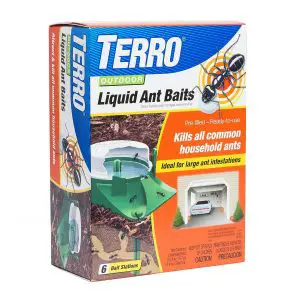
Do ants harm plants?
The answer to this question is a bit complicated. Some ants are actually beneficial to gardens because they aerate the soil and help control pests. However, certain species of ants can damage plants by tunneling through their roots or eating their leaves. If you’re seeing ants crawling on your plants or notice that your plants are wilting, it’s probably time to take action.
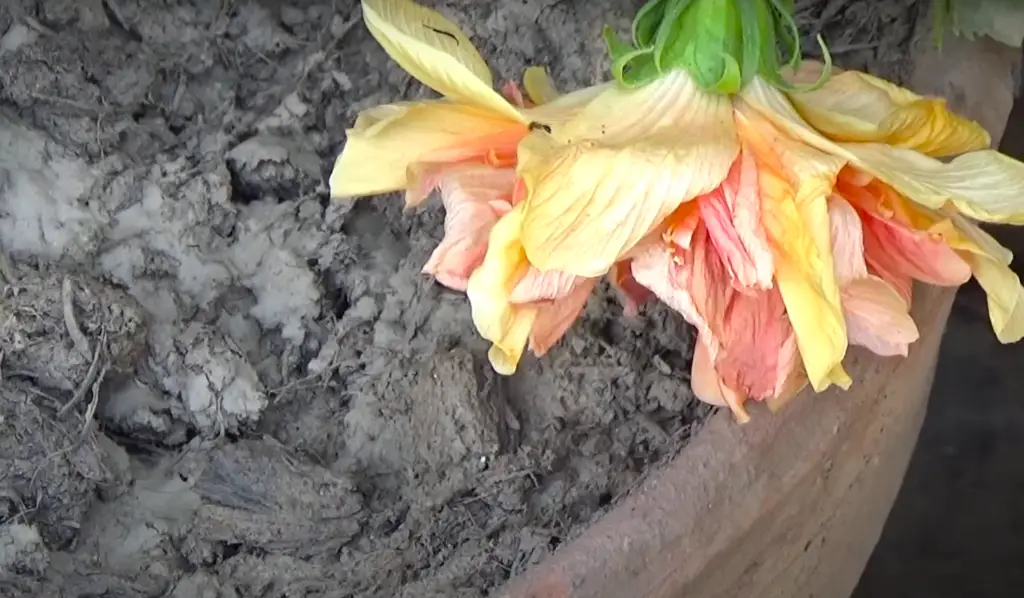
Try creating a barrier around the base of the plant with diatomaceous earth or cayenne pepper. You can also try making a homemade ant spray by mixing water, vinegar, and dish soap.
Why do ants infest gardens?
There are a few reasons why ants might take up residence in your garden. Maybe the weather has been especially hot and dry, driving them out of their natural habitat in search of food and water. Or, they could be seeking shelter from predators. Whatever the reason, you probably want them gone as soon as possible – but how?
There are a few things you might try if you’re searching for a technique to eliminate ants without hurting plants. For example, setting out bait traps or spraying with soapy water are both effective methods.
This involves baiting the traps with food that the ants will take back to their nest. The ants will then eat the bait and die, hopefully taking the rest of the colony with them.
To make a bait trap, start by mixing together some sugar and water in a bowl. You can also add a few drops of dish soap to help the mixture stick to the traps. Then, place the mixture on small plates or in shallow bowls around your garden. Be sure to put them in areas where you’ve seen ants previously. [1]
Another effective method is spraying them with soapy water to kill any ants that are sprayed directly, but it also makes it harder for them to travel as they’ll be coated in soap. To make soapy water, simply mix together water and dish soap in a spray bottle. Then, whenever you see ants, give them a quick spritz!
Common Black Garden Ants
These small, black insects are attracted to sweet things like honeydew and nectar. They also eat other insects, including aphids and caterpillars.
Here are species of black ants that commonly invade gardens:
Carpenter Ants
Carpenter ants are a type of garden ant that can be a problem. These larger ants are black or red and build their nests in wood, including the wood of houses.
Carpenter ants are typically not a problem in gardens, but they can be if they enter the garden from their nest in a house or other building. If you see carpenter ants in your garden, it is best to contact a pest control professional to get rid of them.
Fire Ants
Fire ants are a type of garden ant that can be very dangerous. These red ants build nests in the ground and can sting people and animals. Fire ants can be a problem in gardens, especially if you have children or pets.
You should avoid walking on fire ant mounds and keep children and pets away from them.
Acrobat Ants
These small, black ants build nests in trees and shrubs. Acrobat ants will also build nests in the eaves of buildings and other structures.
Yellow Meadow Ants
The yellow meadow ant is a small, yellow-colored ant that is common in gardens. These ants are not harmful to plants, but can be a nuisance when building their nests near plant roots. They can be controlled by using an insecticide or baiting them with sweet food.
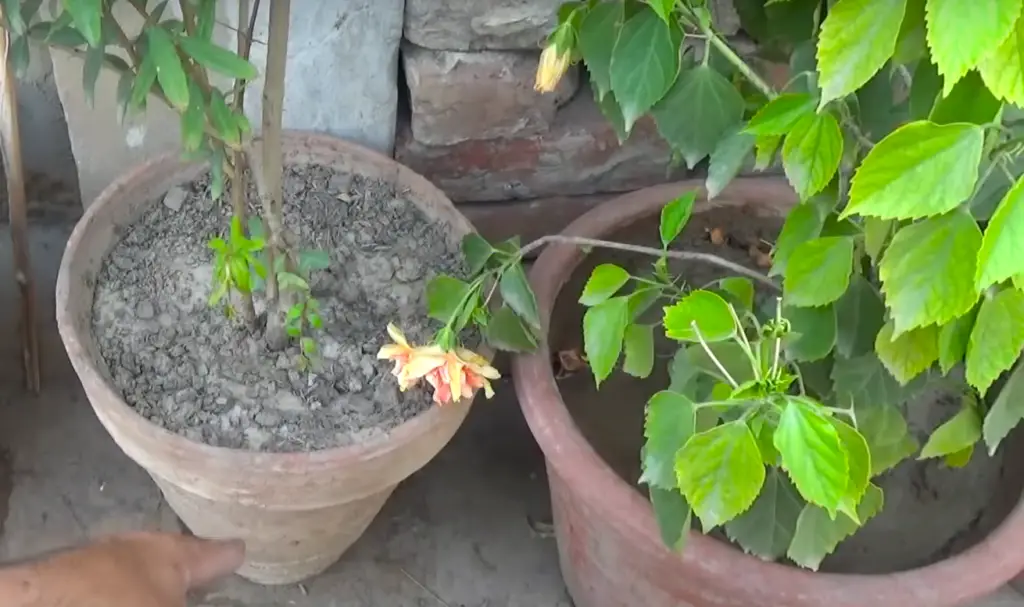
Yellow meadow ants can be hard to get rid of since they nest in soil that is not susceptible to pesticides. The greatest method to get rid of them is with an insecticide. You can also bait them with sweet food, such as honey or sugar water. Be sure to keep baits away from children and pets. [2]
How to Get Rid of Ants in Plants Without Harming them
Use Hot/Cold Water
One method is to pour hot water on the anthill for killing the ants and their eggs. You may also use boiling water on the plants that are being attacked by ants.
Another way to eliminate ants is to pour cold water on the anthill. This will cause the shock and ants die. You can also put ice cubes on the plants, which are being infested by ants.
Drop Food-Grade Diatomaceous Earth Close to Ant Nest
This is a harmless and purely organic substance manufactured from the fossilized remains of algae. It’s safe to use around kids and pets, but it’s deadly to insects. When ants come into contact with diatomaceous earth, it cuts through their exoskeletons and dries them out, killing them within hours.
To use it as an ant killer, simply sprinkle a line of it around the perimeter of your garden beds or wherever you’ve seen ants crawling. You can also put some in a small dish and set it near the nest itself. Just be sure not to disturb the nest too much, or you could make things worse by stirring up angry ants.
If you have pets or children, make sure they can’t get to the diatomaceous earth. It’s not harmful to them, but it can be a respiratory irritant if it’s inhaled in large quantities.
It won’t kill every ant in your garden, but it will reduce the population over time. And since it’s non-toxic, you don’t have to worry about harming other wildlife or plants.
Introduce Beneficial Nematodes
If you want to eliminate ants in the garden without harming plants, then beneficial nematodes are your best bet. These microscopic creatures live in the soil and feed on insects, including ants. They’re safe to use around children and pets, and they’re relatively easy to apply. All you need to do is mix them with water and then soak the affected area with the mixture.
Beneficial nematodes can be purchased online or at most garden stores. Once you have them, they’ll last for several months in storage. And if you have a persistent ant problem, you can reapply them every few weeks until the problem is gone.
There are a few things to keep in mind when using beneficial nematodes. First, they only work on soil-dwelling insects, so if ants are coming into your garden from another source (like a nest in your house), you’ll need to address that problem as well. Second, beneficial nematodes only travel a few inches below the surface of the soil, so you’ll need to apply them directly to the areas where ants are active.
If you’re looking for a more natural way to eliminate ants, then beneficial nematodes are a great option. They’re safe to use and easy to apply, and they can help get rid of an ant problem quickly.
Use Orange Seed Spray
To make this natural ant killer, mix one cup of water with a teaspoon of orange seeds. Spray the solution around problem areas in your garden, such as near anthills. The citrus scent will repel ants and other pests while the orange seeds will kill them on contact. Reapply the spray every few days or as needed.
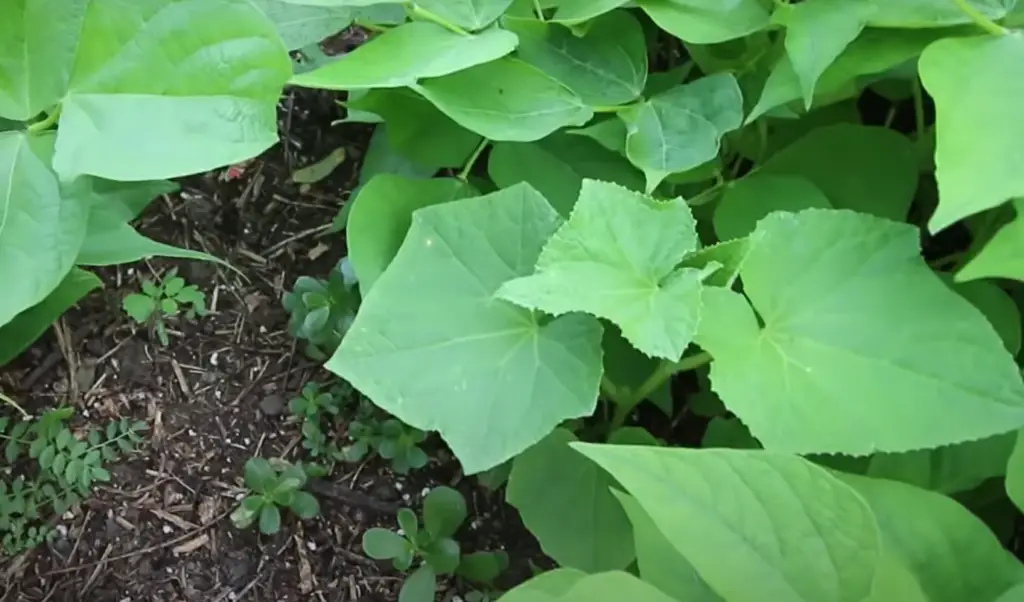
If you’re looking for a more long-term solution, try planting some marigolds around your garden. These flowers give off a chemical that deters ants and other insects from coming near them.
Cinnamon
Cinnamon is another great natural ant repellent. You may use it to coat your garden’s problem sites or create a solution by combining one cup of water with a teaspoon of cinnamon. Spray the solution around your garden, being sure to avoid plants that might be harmed by the cinnamon. Reapply as needed.
Cayenne Pepper
Cayenne pepper is a great way to keep ants out of your garden. Simply sprinkle it around the perimeter of your garden or directly on anthills. You can also make a spray by mixing one cup of water with a tablespoon of cayenne pepper. Be sure to avoid spraying this solution on any plants, as it can harm them. Reapply as needed.
Chalk
Chalk is a simple and effective way to repel ants. Just draw a line around the perimeter of your garden with chalk. The ants will not cross the line and will be kept out of your garden. You’ll need to reapply the chalk as it wears away or if it rains.
Dawn Dish Soap
Dish soap is a common household item that can be used to kill ants. Simply mix a solution of one part dish soap and three parts water. Spray it in your garden or directly on anthills to prevent ants from congregating there. The dish soap will kill the ants on contact. Reapply as needed.
Diatomaceous Earth
Diatomaceous earth is a powder made from fossilized algae that punctures the exoskeletons of insects, killing them. Simply sprinkle it around problem areas in your garden or directly on anthills. Just be sure to wear a mask when you apply it so you don’t breathe it in. Reapply as needed.
Liquid Soap and Oil
If you’re looking for a natural way to eliminate ants in your garden, try a mixture of liquid soap and oil. Simply combine equal parts of each in a spray bottle and spritz the solution directly on the ants. The soap will suffocate them and the oil will repel them. You can also add a few drops of essential oil to this mixture for extra protection against these pests.
Another option is to make a sugar water trap.
Once they start drinking, they won’t be able to stop and will eventually drown.
The Borax and Sugar Combination
If you’re looking for a more effective way to get rid of ants, try using borax. This is a natural substance that is often used as an insecticide. Mix equal measures of sugar and borax together and scatter it around your yard as a perimeter treatment. The ants will be drawn to the sugar, but they won’t be able to resist the borax. This combination will kill them quickly and effectively.
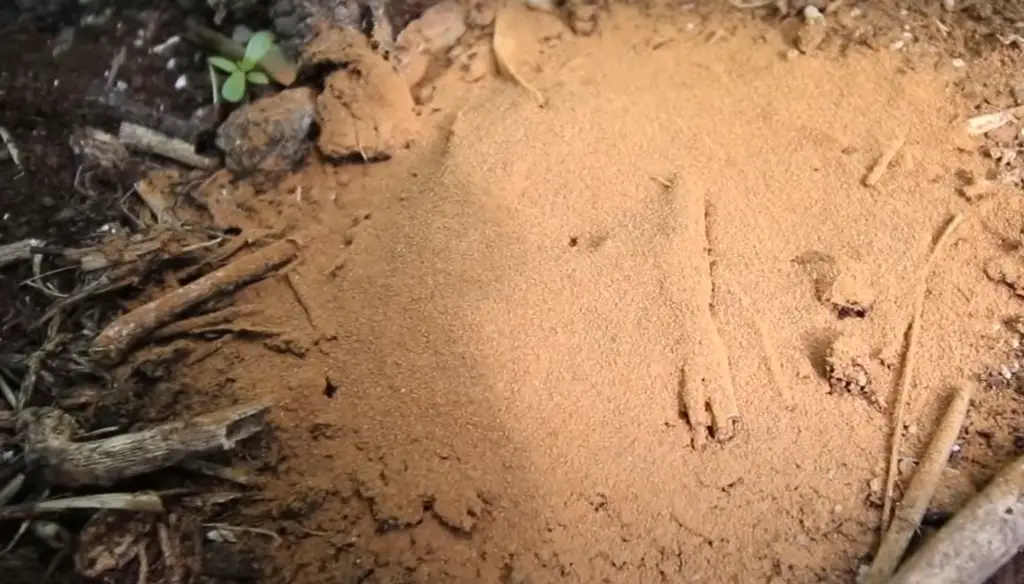
Just remember that borax can be harmful to plants, so be sure to keep it away from any areas where you don’t want it to kill the vegetation.
White Vinegar
White vinegar is a popular remedy for eliminating ants. In a spray bottle, combine an equal amount of water and white vinegar for your garden. You can also make the solution to soak cotton balls and leave them in places where you see ants. The disadvantage of utilizing white vinegar is that it can harm plants, so be cautious where you spray it. If you’re worried about harming your plants, you can try using diluted vinegar instead.
Another way is to create a trap. To do this, mix one part of sugar with one part water and add a few drops of white vinegar. Place the mixture in a shallow dish and place it near an ant trail. The ants will come to the dish for the sugar since it is a delicious treat. Once they’re in, they won’t be able to get out and will drown.
Here are a few more suggestions for keeping ants out of your garden:
- Keeping your garden clean and free of food scraps.
- Trimming back any plants that touch the ground.
- Eliminating sources of water, such as leaky hoses or standing water.
Try out a few of these methods and see which ones work best for you. With a little patience, you’ll be able to keep your garden ant-free all season long!
Why You Should Get Rid of Ants in the Garden?
Ants are one of the most prevalent garden pests. They can quickly become a nuisance, invading your plants and disturbing the soil. If left unchecked, they can cause serious damage.
There are several reasons why you should eliminate ants in the garden:
- Ants can damage plant roots, which can lead to stunted growth or even death.
- Ants can spread diseases from plant to plant.
- Ants can infest your home and become a nuisance indoors as well.
Eliminating ants in the garden is not difficult, but it does require some patience and perseverance. The most important thing is to identify the type of ant that is causing the problem.
Comparison of Methods to Eliminate Garden Ants Without Harming Plants
Ants can be beneficial to a garden ecosystem, but their presence can also lead to problems such as tending aphids and damaging plant roots. Finding ways to manage ant populations without harming your plants is important for maintaining a healthy garden environment. This table compares different methods for getting rid of ants while ensuring the well-being of your garden plants.
| Method | Effectiveness | Impact on Plants | Ease of Implementation | Cost |
|---|---|---|---|---|
| Manual Removal | Low | Minimal | Easy | Low |
| Diatomaceous Earth | Moderate | Minimal | Moderate | Low |
| Vinegar Solution | Low | Minimal | Easy | Low |
| Cinnamon | Low | Minimal | Easy | Low |
| Citrus Peels | Low | Minimal | Easy | Low |
| Beneficial Insects | High | Negligible | Moderate | Moderate |
| Soap Solution | Moderate | Minimal | Easy | Low |
Explanation:
- Manual Removal: This involves physically removing ant nests and colonies. It’s minimally effective and easy to implement but may not provide long-term results.
- Diatomaceous Earth: It’s moderately effective and has minimal impact on plants. Application is moderately easy, and cost is low.
- Vinegar Solution: Low effectiveness, easy application, and minimal impact on plants. However, it may not eliminate entire colonies.
- Cinnamon: Low effectiveness but easy to implement. Cinnamon can deter ants, but it might not completely eliminate them.
- Citrus Peels: Similarly, low effectiveness with easy implementation. Citrus peels can repel ants, but they might not solve the problem entirely.
- Beneficial Insects: Highly effective as natural predators, with negligible impact on plants. Implementation can be moderate in terms of ease, and cost is moderate.
- Soap Solution: Moderately effective and easy to apply. It has minimal impact on plants and is cost-effective.
These methods aim to control ant populations in the garden without harming plants. The choice of method depends on your preferences, the severity of the ant issue, and your commitment to eco-friendly practices.
FAQ
How do I get rid of ants in the garden naturally?
There are a few ways to do it naturally. One way is to use a mixture of sugar and Borax. You can also try using diatomaceous earth or nematodes.
Another way is to simply remove their food source. If you have a lot of anthills, chances are there is something nearby that they’re feeding on. Try to figure out what that is and remove it from the area.
You can also try using barriers. This can be anything from a physical barrier like rocks or mulch, to a chemical barrier like an insecticide spray or powder.
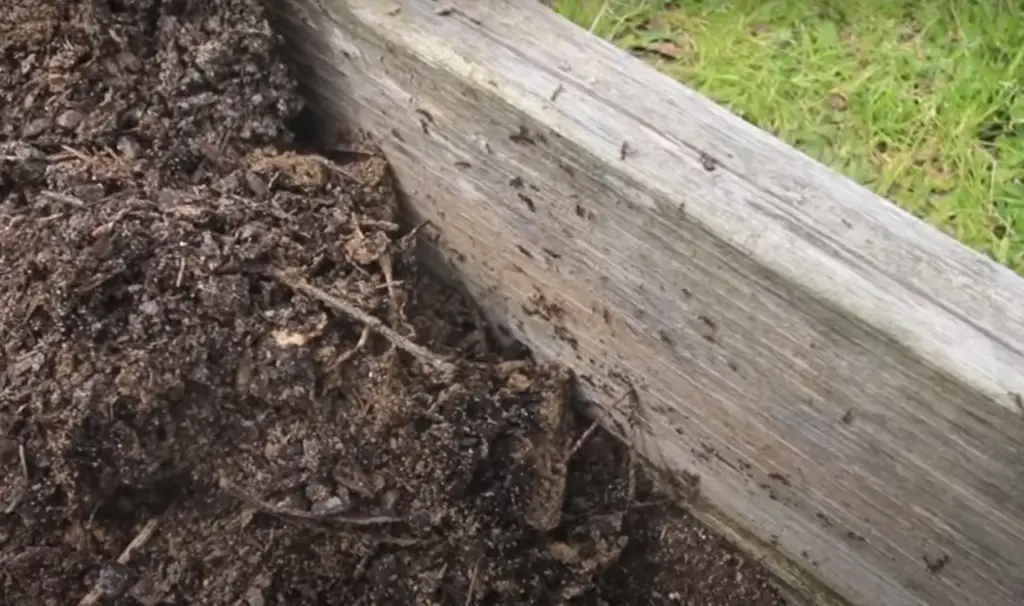
Finally, remember that ants are beneficial insects and play an important role in the ecosystem.
How do I keep ants off my plants?
There are a few things you can do to keep ants from attacking your plants. You can try:
- Using diatomaceous earth.
- Putting up barriers such as plastic or foil around the base of the plant.
- Spraying the plant with water or vinegar.
- Making a homemade ant repellent spray with essential oils.
Will vinegar kill ants in the garden?
Yes, vinegar will kill ants in the garden. You should use vinegar with caution and only as a last resort. If you do decide to use vinegar, be sure to dilute it with water so that it does not harm your plants. [4]
You can also try placing barriers around your plants or using insecticidal soap or attracting natural predators of ants, such as ladybugs or lacewings.
How do I get rid of ants in the garden without killing plants in the UK?
If you’re looking for a way to eliminate ants in your garden without harming your plants, there are a few things you can try. One option is to mix together water and vinegar in a spray bottle and use it to target the ants’ nests. Another possibility is to make a homemade ant bait by mixing together borax, sugar, and water. You can also try using diatomaceous earth or cayenne pepper as a natural deterrent. Be sure to keep an eye on the situation and reapply the treatment as necessary. With a little patience and perseverance, you should be able to eliminate pesky ants for good!
What is the best way to eliminate ants in the garden?
You can create a physical barrier between the ants and your plants. This can be done by sprinkling diatomaceous earth around the base of your plants. The sharp edges of the diatomaceous earth will cut through the ant’s exoskeleton, causing them to dehydrate and die.
You can use a natural insecticide such as neem oil. It is derived from the seeds of the neem tree and is effective against a wide variety of pests, including ants. Simply mix some neem oil with water and spray it on your plants, being sure to coat the undersides of the leaves where the ants are likely to be.
You can also try using a bait trap to eliminate ants in the garden. The bait is mixed with poison, which kills the ant colony.
Can I use insecticide to get rid of ants in my garden?
The most common type of insecticide used to kill ants is called carbaryl. Carbaryl is a broad-spectrum insecticide, meaning it will kill a wide variety of insects, not just ants. It’s important to note that carbaryl is highly toxic to bees and other pollinators, so you should avoid using it if you have flowering plants in your garden. There are also less toxic alternatives to carbaryl, such as boric acid, which can be effective at killing ants without harming other insects.
If you decide to use an insecticide, be sure to follow the directions on the label carefully. Many insecticides require you to mix them with water before applying them to your garden. You’ll also want to make sure you apply the insecticide to the areas where ants are active, such as near their nests or trails. Otherwise, you won’t be able to effectively kill the ants. [5]
In some cases, you may need to reapply the insecticide multiple times before all of the ants are gone. Be patient and continue following the directions on the label until all of the ants are killed.
Do coffee grounds keep ants away?
Coffee grounds are effective at repelling ants because of their strong smell. Ants are also attracted to the sugar in coffee, so they’ll be drawn to the grounds even more. The ants will be attracted to the sweet mixture and then get stuck in the coffee grounds. [6]
Does diatomaceous earth kill ants?
This is a type of sedimentary rock that’s made up of the fossilized remains of tiny aquatic creatures called diatoms. It’s very effective at killing insects like ants because it has sharp edges that cut through their exoskeletons and dehydrate them. You can find diatomaceous earth at most hardware stores or online.
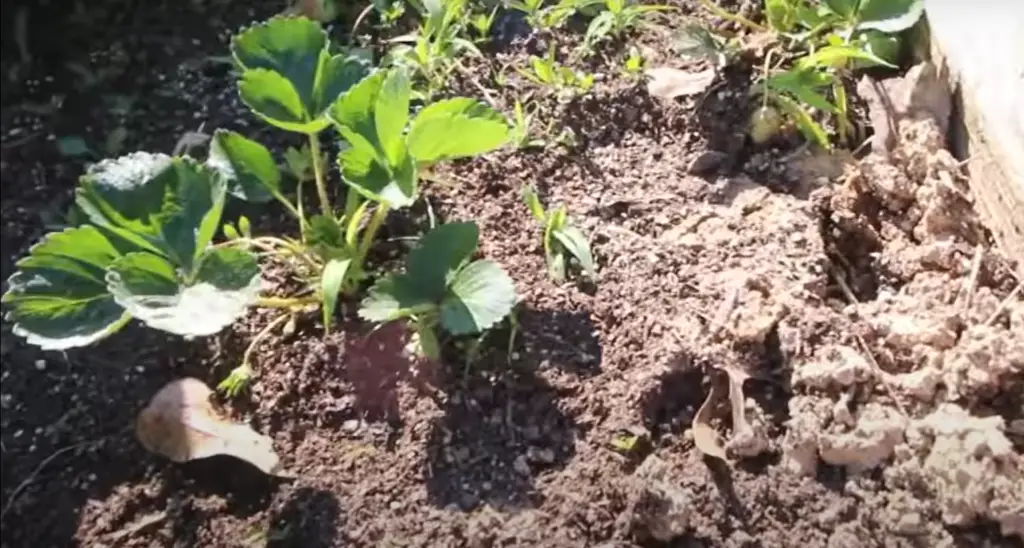
Diatomaceous earth is a powder derived from fossilized sea life, which is absorbed through the exoskeleton of aquatic organisms. Sprinkle it around your garden or wherever you observe ants crawling to use it to destroy ants. The ants come into contact with it and eventually die.
Do essential oils keep ants away?
Essential oils are a natural way to repel insects like ants. Some good ones to use are peppermint oil, lemon oil, and eucalyptus oil. Just add a few drops of each to a spray bottle filled with water and spray it around the perimeter of your garden or wherever you see ants crawling. The strong odor will keep them at bay. You’ll need to reapply the spray after rain or watering. [7]
What are some non-toxic methods to deter ants from my garden?
You can use cinnamon, citrus peels, or borax mixed with sugar to create natural ant repellents that won’t harm your plants.
How can I disrupt ant trails without harming my garden plants?
Sprinkle baby powder, chalk, or flour along ant trails to interrupt their communication and make them lose their way.
Are there any plants that naturally repel ants and protect my garden?
Yes, plants like mint, tansy, and marigolds emit scents that ants dislike, helping to keep them away from your garden.
What role do ants play in the garden ecosystem, and how can I manage their population?
Ants can aerate the soil and help with pollination, but excessive populations can harm plants. You can manage their numbers by removing attractants and using barriers.
How do I create physical barriers to prevent ants from reaching my plants?
Use sticky barriers like double-sided tape or petroleum jelly around plant stems to deter ants from climbing onto your plants.
What is the importance of keeping my garden clean to prevent ant infestations?
Ants are attracted to food residue and sugary substances. By maintaining a clean garden and proper waste disposal, you can reduce their attraction to your outdoor space.
Can I use companion planting to deter ants while protecting my garden plants?
Yes, certain companion plants like garlic, chives, and basil can help deter ants and other pests while benefiting your garden’s overall health.
How do I eliminate ant colonies near my garden without harming the soil?
Pouring a solution of hot water and dish soap into ant hills can help destroy colonies without causing harm to the soil or your plants.
What organic substances can I use to repel ants and maintain a healthy garden?
Try using crushed eggshells, coffee grounds, or citrus-based sprays to create a barrier that ants will avoid.
Are there specific cultural practices I can adopt to prevent ant infestations?
Practices such as proper watering, regular weeding, and maintaining healthy soil can make your garden less appealing to ants and other pests.
Useful Video: How to Get Rid of Ants in Garden Without Killing Plants
Conclusion
There are a few different ways to eliminate ants in your garden without harming your plants. One is to mix coffee grounds with sugar and water to create a sticky trap. Another is to sprinkle coffee grounds around your garden as a natural insecticide. Diatomaceous earth can be used to exterminate ants in a number of ways, including sprinkling it around your garden or anywhere you observe them crawling.
Thanks for reading! We hope this guide was helpful.
References:
- https://www.fantasticpestcontrol.co.uk/ants/get-rid-garden-ants-protect-plants/
- https://backyardbooster.com/get-rid-of-ants-in-garden-without-killing-plants/
- https://www.igra-world.com/get-rid-of-ants-in-garden/
- https://www.kellogggarden.com/blog/insect-pest-control/natural-way-to-keep-ants-off-plants/
- https://www.happysprout.com/gardening/how-to-get-rid-of-ants-in-garden/
- https://www.abellpestcontrol.com/en-us/about-us/articles/ways-you-can-use-coffee-grounds-to-keep-pests-out-of-your-garden
- https://www.goodhousekeeping.com/home/cleaning/a20707344/homemade-natural-ant-spray/





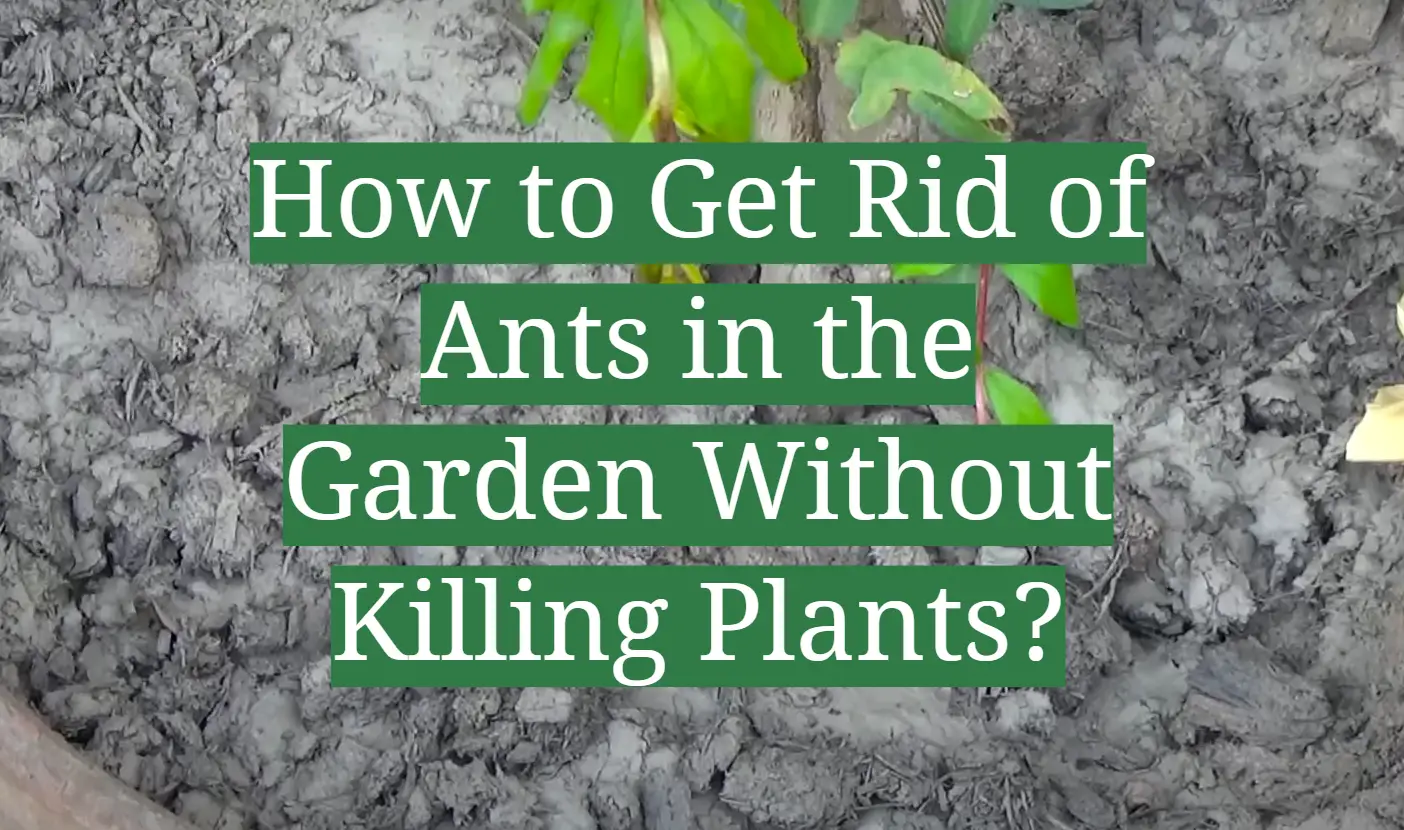
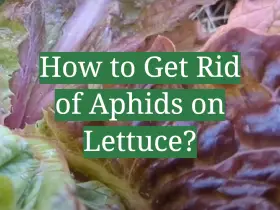
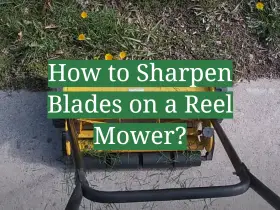
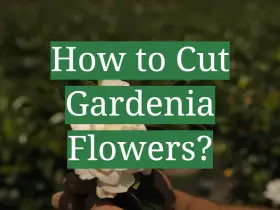
I have never used coffee grounds to get rid of ants, so I cannot speak from personal experience. However, there are a few things to keep in mind if you are thinking of using this method.
First, it is important to remember that coffee grounds are a pesticide. This means that they can be toxic to plants and other wildlife if used improperly. Second, coffee grounds work best when they are wet. So, if you decide to use them, be sure to mix them with water before applying them to the ants’ nest.
Finally, while coffee grounds may be effective in getting rid of ants, they will also kill any plants or insects that come into contact with them. So, if you choose to use this method, be sure to apply the coffee grounds carefully and avoid getting them on any plants you want to save.
I’ve had my share of encounters with fire ants. They are pesky little critters that can ruin a good day outdoors. I have tried several methods to get rid of them, but the most effective method I’ve found is to kill them with Dawn dish soap.
To do this, you will need a bucket of soapy water and a spoon or fork. Simply drown the ants in the soapy water and they will die. Make sure to get as many of them as possible, as they can be very difficult to get rid of once they establish a colony.
Dish soap is a great way to kill fire ants because it is safe for plants and it won’t damage your lawn or garden like some insecticides can. It’s also a lot cheaper than buying commercial ant killer products.
I’ve been dealing with ants in my garden for years now, and I’ve finally found a way to get rid of them without killing my plants. Here’s what I do:
1) First, I identify the ant hills in my garden. These are usually easy to spot, because the ants will be moving around a lot and the ground will be covered in small piles of dirt.
2) Once I’ve identified the ant hills, I take a bucket of soapy water and pour it over the ant hills. This will kill most of the ants, and will also deter any others from coming back.
3) If there are any remaining ants after step 2, I take a spray bottle filled with vinegar and spray them down. Vinegar is a natural ant killer, so this will finish them off.
4) Finally, I sprinkle some cinnamon over the ant hills. Cinnamon is a natural deterrent to ants, so they won’t come back to that area again.
I have a confession to make – I am slightly obsessive when it comes to ants. If I see one in my house, I go into full-blown panic mode trying to figure out how to get rid of them. So when I discovered that my garden was full of ants, I knew I had to take action.
After doing some research, I learned that the best way to get rid of ants in the garden is with a homemade fire ant killer made from dawn dish soap and water. This solution is non-toxic and safe for plants, so you don’t have to worry about harming your garden.
To make the fire ant killer, mix together 1 tablespoon of Dawn dish soap with 1 cup of water. Then, using a spray bottle, spray the mixture directly on the ants. Within minutes, the ants will start dying and you can just sweep them up and dispose of them.
Make sure to reapply the mixture every few days until all the ants are gone. And that’s it – you’ve successfully gotten rid of those pesky ants without killing your plants!
Every time I see ants in my garden, I feel like they’re winning. My plants are my babies and I don’t want to see them harmed, but at the same time, I don’t want ants marching all over them. So what’s a girl to do?
I’ve found that the best way to get rid of ants without killing plants is with a combination of dawn dish soap and vinegar. Simply mix a small amount of dish soap with water in a spray bottle and spritz the ants. They’ll start to scatter and then you can spray them with vinegar. The vinegar will kill them and the dish soap will help to dissolve their chemical trail, which will keep other ants from coming back.
I remember the first time I ever had to deal with fire ants. It was a blistering hot day, and I was out in my garden, working on my plants. Suddenly, I felt this sharp pain in my foot – I looked down and saw hundreds of these little red ants crawling all over me!
I quickly tried to brush them off, but they were relentless. And the more I brushed them off, the more they seemed to swarm. Before long, I was completely covered in ants, and they were biting me everywhere. It was absolutely miserable!
So, if you’re dealing with a fire ant invasion in your garden, here are a few tips for getting rid of them without killing your plants:
1. Use boiling water. Boil a pot of water and pour it over the ant hills. This will kill the ants and solve your problem pretty quickly.
2. Use an ant bait. There are many different brands of ant bait available at your local hardware store. Just be sure to follow the instructions carefully so that you don’t harm any of your plants.
3. Use an insecticide. If you’re not afraid to use chemicals, there are many insecticides available that will take care of the ants for you. Just be sure to read the label carefully and only use it as directed.
I have to be honest, I’m not a fan of ants. I don’t like the way they invade my space and I definitely don’t like the way they march around like they own the place. So when I discovered that ants were invading my garden, I was not happy.
I tried using store-bought pesticides to get rid of the ants, but that just seemed to make them angry and more determined than ever to take over my garden. Then I tried using natural methods, like pouring boiling water on the anthills, but that just seemed to make the problem worse. It seemed like no matter what I did, the ants were winning.
Finally, I tried using dawn dish soap. I know it’s not technically a pesticide, but it seems to work just as well as any of those things. All you do is mix a little bit of soap with some water in a spray bottle and then spray it on the anthills. The ants will die instantly and your plants will be safe.
So if you’re having trouble getting rid of ants in your garden, give dawn dish soap a try. It’s cheap, it’s easy to use, and it works like a charm.
I have always been fascinated by ants. They are so small, yet they can build such large colonies. I used to watch them in my garden, and I was always amazed at how quickly they could travel from one spot to another.
But one day, I noticed that there were ants everywhere in my garden- and they were all dying. I didn’t know what was happening, but I soon found out that the ants were dying because of the soap I was using to water my plants.
At first, I was upset that my beautiful garden was being ruined by these pesky ants. But then I realized that the ants were actually harming my plants, and so it was necessary to get rid of them.
Even though it was difficult to see the ants dying, I knew that it was for the best. And now my garden is free of ants, without any damage done to the plants.
I used to be terrible at getting rid of ants in the garden. Every time I would see a line of them marching across my plants, I would reach for the can of insecticide and start spraying. But I soon learned that this was not the best way to get rid of ants.
First of all, using insecticide can be harmful to plants – especially if you’re spraying it directly on them. Second of all, it’s not always effective at getting rid of ants. They can be very resistant to chemicals, and oftentimes the colonies will just relocate to another part of the garden.
So what’s the best way to get rid of ants in the garden without killing plants? One method that has worked well for me is to use a homemade ant bait. I make a simple syrup out of sugar and water, and then add a few drops of dish soap. This makes the syrup more viscous so that the ants can’t drink it up quickly. I then put the syrup in little bowls and place them around the garden where I’ve seen the ants.
The ants will eventually find the syrup, and take it back to their colony. The dish soap will kill them once they ingest it, but it won’t harm the plants. And since you’re using a natural remedy, there’s no risk of developing resistance to it like you can with chemical pesticides.
I’ve always been curious about whether or not coffee grounds keep ants away. I’ve tried doing some research on it, but there seems to be no clear answer. So, I decided to conduct my own little experiment.
I filled two small bowls with coffee grounds and placed them in different areas of my garden. One bowl was near the plants, while the other was further away from the plants. I then waited a few days to see if there was any difference in the number of ants in each area.
Sure enough, there was a noticeable difference! The bowl near the plants had significantly more ants than the other bowl. This confirms that coffee grounds can indeed help keep ants away from your plants.
So, if you’re having trouble with ants invading your garden, try sprinkling some coffee grounds around your plants. It may just do the trick!
When I was younger, my family would go on vacation every year to a cabin in the woods. We would always spend the first day unpacking and then spend the rest of the time playing in the yard. Every year, we would find ants crawling all over our food and drinks. We tried everything to get rid of them, but nothing worked. Finally, my dad had the idea to put a line of Vaseline around the edge of the patio. It worked like a charm! The ants couldn’t cross the line, and we were able to enjoy our time outside without having to worry about them.
I was a little hesitant to share this information at first, because I don’t want anyone to think I’m a witch or something. But ants are pesky, and they can really do some damage to your plants if you let them stay. So, if you’re having problems with ants in your garden, here’s what you need to do:
The first step is to find out where the ants are coming from. Sometimes they’re coming from a nest underground, and other times they’re coming from an open container of sugar or something else that they’re attracted to. Once you know where the ants are coming from, you can take steps to get rid of them.
If the ants are coming from an underground nest, you can kill them with a pesticide. But be careful not to get the pesticide on any plants, because it will kill them.
If the ants are coming from a container, you can either get rid of the container or you can put a barrier around the plant so the ants can’t get to it. You can use something like petroleum jelly or hot sauce to create the barrier.
When I moved into my first apartment, I was excited to start gardening. I had visions of a beautiful garden with flowers blooming and butterflies flitting about. However, my dreams were quickly dashed when I discovered that ants had taken up residence in my garden! At first, I tried using ant traps, but that only seemed to make the problem worse. Then, I tried spraying the ants with insecticide, but that also killed the plants. Finally, I came up with a solution that worked: I poured boiling water on the anthills. This not only got rid of the ants, but it also killed any weeds that were growing in the garden.
My personal story on will vinegar kill ants in the garden is that it worked like a charm! I was a little hesitant at first, but I’m glad I tried it. I had a bunch of ants invading my garden and ruining my plants, so I did some research and found out that vinegar is a natural ant killer. I mixed up a batch of vinegar and water in a spray bottle and sprayed it all over the ant hill and around my plants. Within minutes, the ants were gone! And to my surprise, my plants weren’t harmed at all. Thanks, vinegar, for saving my garden!
I’ve been battling ants for weeks now and I’m starting to lose hope of ever getting rid of them! I’ve tried all the usual methods like spraying them with soapy water or using an ant killer, but they just keep coming back. I don’t want to use any harsh chemicals or pesticides because I’m afraid they’ll kill my plants. Is there any way to get rid of ants without harming my plants?
I’ve found that the best way to get rid of ants is to use a natural deterrent like vinegar or lemon juice. I mix a little vinegar or lemon juice with water and spray it on the plants where the ants are congregating. The vinegar or lemon juice makes the ants’ acidic stomachs upset and they quickly move on to find another place to live.
I used to have a huge problem with ants in my garden. I would see them marching in single file lines from one side of the yard to the other, and it seemed like no matter what I tried, I couldn’t get rid of them. I would find their little nests all over the place, and even when I would kill the ants that were in sight, more would just come back.
I finally hit on the solution when I was out of ideas: dish soap. I mixed a few drops of dish soap into a spray bottle filled with water, and sprayed it all over the ant nests. The dish soap killed the ants immediately, and since it’s non-toxic to plants, it didn’t harm my flowers or vegetables.
Since then, I’ve been using this method to get rid of ants in my garden every year, and it’s never failed me. If you’re having a problem with ants in your garden, give this a try – it might just be the solution you’ve been looking for!
I remember the first time I had an ant problem.
I was about to sit down to eat my dinner, and I saw a trail of ants leading from the kitchen to the dining room.
I followed the trail and found a big bunch of them crawling all over my food!
I quickly got rid of them, but I didn’t want them coming back.
I did some research and found out that there are a few ways to get rid of ants without killing them.
The best way to get rid of ants is to find their nest and destroy it.
You can do this by pouring boiling water on it, or by spraying it with insecticide.
Another way to get rid of ants is to use a bait trap.
You can make your own bait trap by mixing sugar and borax together.
The sugar will attract the ants, and the borax will kill them.
You can also buy pre-made bait traps from the store.
I’ve had a lot of experience with ants in my garden. I’ve tried different ways to get rid of them, but the most effective method I’ve found is using boiling water.
I usually pour the boiling water directly on the ant hills, and it kills them instantly. I also pour boiling water on any plants that have been infested by ants, and it seems to kill the ants and save the plants.
I know some people might be hesitant to use boiling water because they’re afraid of harming their plants, but I’ve found that it’s the most effective way to get rid of ants without harming your plants.
How much dawn and water to kill ants? It honestly depends on how many ants you are trying to kill. For a small area, I would mix together 1 part Dawn dish soap and 3 parts water in a spray bottle. If the area is larger, I would use more Dawn dish soap. I would then pour the mixture over the affected area and let it sit for a few hours. The ants will be killed by the Dawn dish soap and will not be able to return to the area.
I always have a huge problem with ants in my garden, especially the fire ants. I have tried everything to get rid of them, but nothing seems to work. I was getting ready to give up and just buy some ant killer when I heard about a natural way to get rid of them. I decided to give it a try and it worked!
The natural way to get rid of ants is to use boiling water. You just need to pour boiling water on the anthill and it will kill the ants. Be careful not to get too close, because the boiling water can also kill the plants.